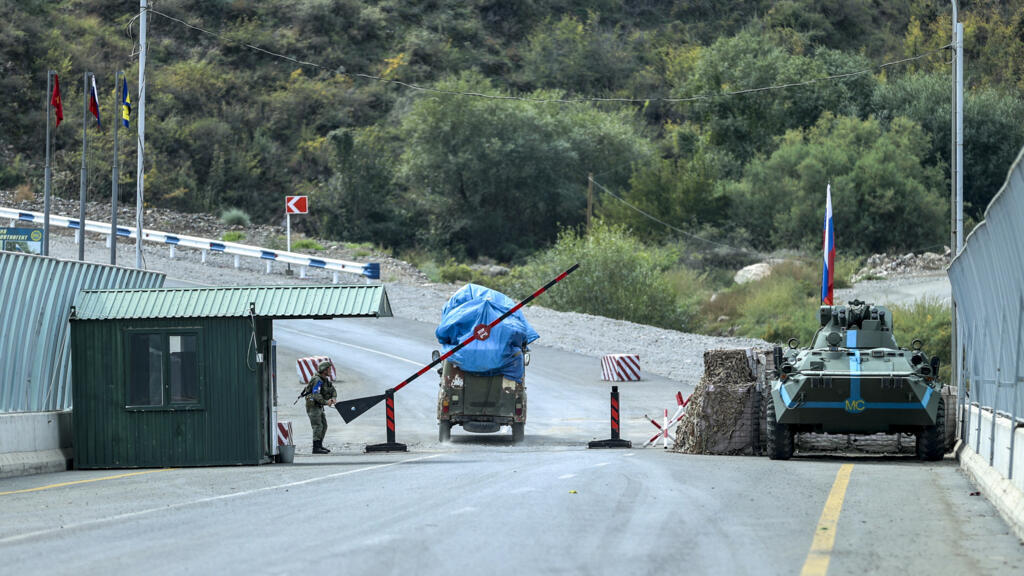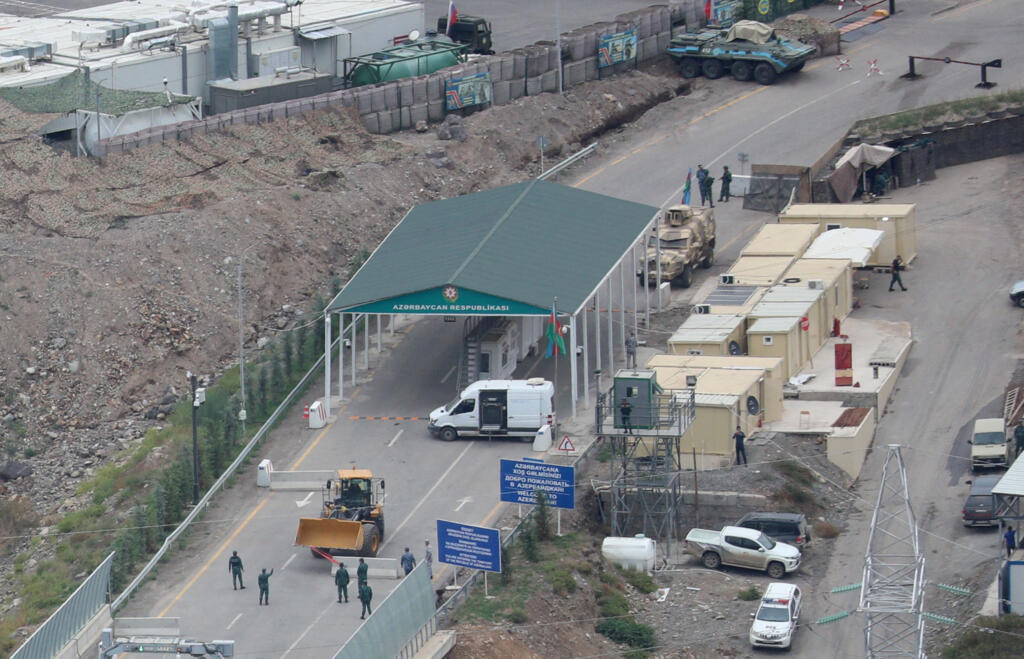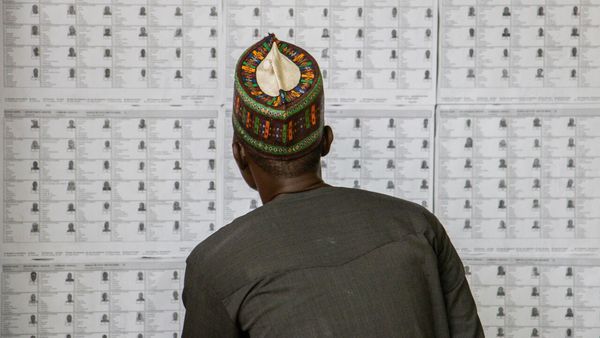
Azerbaijan has lifted restrictions on cargo transit to Armenia, marking a significant step forward in the fragile peace between the two countries after decades of conflict, but the territorial dispute over Nagorno-Karabakh remains a barrier.
President Ilham Aliyev announced the change during a visit to Kazakhstan, pointing to a shipment of Kazakh grain travelling through Azerbaijan to Armenia – the first such transit since cargo limits were imposed in the late Soviet era.
“It’s not a huge game changer in terms of Armenia’s ability to import and export,” said Joshua Kucera, a Caucasus analyst with the International Crisis Group (ICG).
But he added that the move was symbolically important, showing Azerbaijan was “willing to do things that they haven’t been willing to do before".
Armenians caught between hope and distrust after accord with Azerbaijan
The lifting of cargo restrictions follows a series of agreements signed in Washington on 8 August between Aliyev and Armenian Prime Minister Nikol Pashinyan.
These agreements are aimed at ending decades of hostility centred on the Nagorno-Karabakh region – a mountainous territory internationally recognised as part of Azerbaijan but historically inhabited primarily by ethnic Armenians.
The accords – and a 17-point peace deal that is yet to be officially signed and ratified – envisage the opening of transport routes to enhance trade, connectivity and mutual trust between the two countries, as well as the cessation of conflict.
The restoration of trade transits through Azerbaijani territory effectively reconnects Armenia to regional markets, following years of isolation due to prior hostilities and blockades.
Armenian constitution
However, significant hurdles remain. The biggest sticking point, according to Kucera, could be language used in the Armenian constitution which stipulates reunification between Armenia and Nagorno-Karabakh.
“Both sides now [effectively] acknowledge that this is Azerbaijani territory,” he said.
Azerbaijan thus views this as an unacceptable "territorial claim” in Armenia’s constitution, which stands in the way of a final peace agreement.
Armenia is now proposing a referendum on the constitution, to take place in 2027.
But according to Kucera, many Armenians perceive this as “bullying" from Azerbaijan.
"They don't think it's a legitimate demand from Azerbaijan. And so nobody knows if this referendum is going to pass."
He added that many Armenians may simply boycott it. “If the referendum fails, the peace process will get a big hit."
Spectre of 1915 Armenian genocide looms over Nagorno-Karabakh

Regional peacemaker
Meanwhile, United States President Donald Trump claims that agreements between the two countries will be cemented by the "Trump Route for International Peace and Prosperity” (Tripp).
This transport corridor through southern Armenia would link Azerbaijan to its exclave Nakhchivan, bypassing Iran and cutting transit times significantly.
If the referendum fails, the peace process will take a big hit.
REMARKS by Joshua Kucera, International Crisis Group
Azerbaijan flexes its muscles amid rising tensions with Russia
With this initiative, the White House appears to be assuming the regional peacekeeper role that was traditionally Moscow's, but Kucera is sceptical about a lasting US role in the area.
"Traditionally, the Caucasus has not been a very high priority of the US,” he told RFI. “Long before Donald Trump, you [had] an occasional attempt to get involved. [But] the attention never lasts for very long."
He added: “I don't think you can expect that this Russian absence from the Caucasus is going to last forever."







